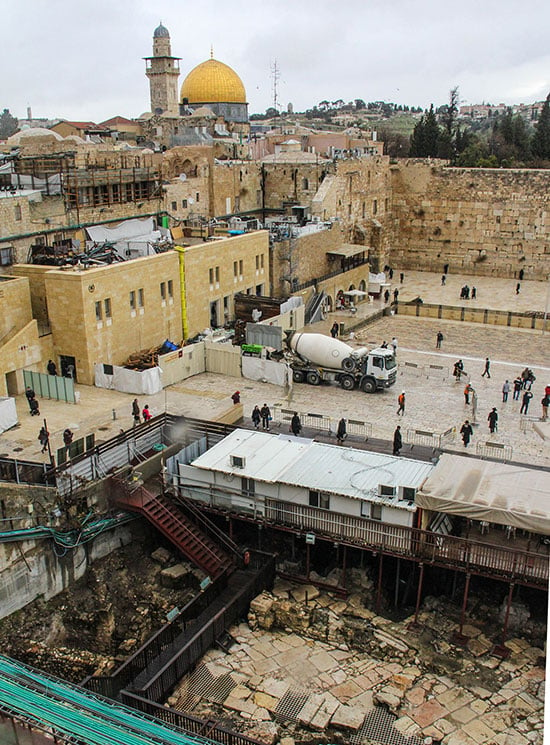
‘As the mountains surround Jerusalem’
JERUSALEM — " There are people with hearts of stone,…
| Refresh | This website christianchronicle.org/hope-in-an-unlikely-place-israels-hotel-corona/ is currently offline. Cloudflare's Always Online™ shows a snapshot of this web page from the Internet Archive's Wayback Machine. To check for the live version, click Refresh. |
Protests. Pandemic. Injustice.
Enraged. Outraged. Just … rage.
And masks.
In 2020, the last place I expected to find any kind of model for “how should we then live” was the Middle East, the modern state of Israel.
I visited there four years ago as the guest of Israel’s tourism ministry. Standing on the banks of the Jordan, at the Sea of Galilee or the Wailing Wall in Jerusalem, the experiences were amazing.
But the conversations often were disheartening. The conflict there is real, and the sides are entrenched. It’s not just Israelis and Palestinians, Jews and Muslims. There are deep gulfs separating the secular, the religious and the ultra-Orthodox.
Add COVID-19 to that mix. The country locked itself down and the Israel Defense Forces used a dozen hotels to quarantine patients with the disease as they recovered. One was the Dan Hotel in Tel Aviv, dubbed “Hotel Corona” by its 180 guests, who came from a plethora of backgrounds.
At first, each pretty much kept to his or her own kind. One patient, Aysha Abu Shhab, was a 19-year-old Arab Muslim from a nomadic Bedouin tribe. She was a janitor at a hospital before she got sick. In an interview with National Public Radio, she talked about approaching an elderly Jewish couple at dinner, something she’d probably never do outside the hotel.
They talked about how they got the virus. They coughed together. And by the end of meal, they were singing together. Aysha captured it on her phone and posted it online.
More videos followed — videos of Arabs and Jews doing Zumba together, attending an impromptu comedy show. Laughing. Hugging.
The world watched in disbelief.
Aysha later witnessed a young Orthodox Jew having an asthma attack. She didn’t know if she was even supposed to touch him. But she helped.
Later a Jewish woman told her that she had done a wonderful thing. She should consider medicine. Aysha has since enrolled in nursing school.

A sign in the Garden Tomb in Jerusalem.
When Passover rolled around, the hotel set up a partition in the banquet hall so that the ultra-Orthodox Jews could have their Seder feast away from the other Jews’ cameras and technology, which the ultra-Orthodox forbid.
But before they celebrated the Exodus from Egypt, a group of hotel guests, including the ultra-Orthodox, pushed the barrier aside. They celebrated together. Even Aysha, a Muslim, was there.
That’s not how the rest of Israel celebrated. COVID restrictions kept Passover Seder gatherings small. Baruch Shpitzer, who works at the hotel, had an intimate, isolated Seder with his family. He later saw video from the end of the celebration at the hotel.
“When you see them together and you know that they don’t have all the rules and barriers that we have now, I believe that a lot of people in Israel are a little bit envious of that.”
An interviewer for NPR’s “Rough Translation” podcast asked Shpitzer if he ever felt jealous of the hotel guests, who could gather and hug freely.
“Yeah,” he replied. “When you see them together and you know that they don’t have all the rules and barriers that we have now, I believe that a lot of people in Israel are a little bit envious of that. People won’t forget this Passover for a long time.”
The guests could check out of Hotel Corona only after testing negative for COVID-19 twice. Some said they didn’t want to leave. (After all, the hotel has a pool.) Outside there was disease and division. Inside, the guests were in recovery … together.
You see it, right? That should be us. That should be the church.
The plagues of society can’t harm a cleansed people. Division, disease, even death will not overcome the church, for we serve one who has overcome the world.
There are myriad ways we can promote unity, diversity and justice in our pews. We discuss some of them in these pages. But whatever we do must come from the realization of our shared affliction. We’re all victims of the pandemic of sin. Racism, malice and distrust are its symptoms. Christ’s blood is the vaccine.
We’re all victims of the pandemic of sin. Racism, malice and distrust are its symptoms. Christ’s blood is the vaccine.
I pray that our churches will emerge from this earthly pandemic as true houses of healing, where people of all ethnicities and socio-economic backgrounds can live together, laugh together and heal together.
May our buildings, like the Dan Hotel, be waiting rooms of redemption. May they be warm places of standing invitation, places people long to visit, places where people want to stay.
Luckily, most of our buildings have pools.
ERIK TRYGGESTAD is president and CEO of The Christian Chronicle. Contact [email protected] and follow him on Twitter @eriktryggestad.
Subscribe today to receive more inspiring articles like this one delivered straight to your inbox twice a month.
Your donation helps us not only keep our quality of journalism high, but helps us continue to reach more people in the Churches of Christ community.